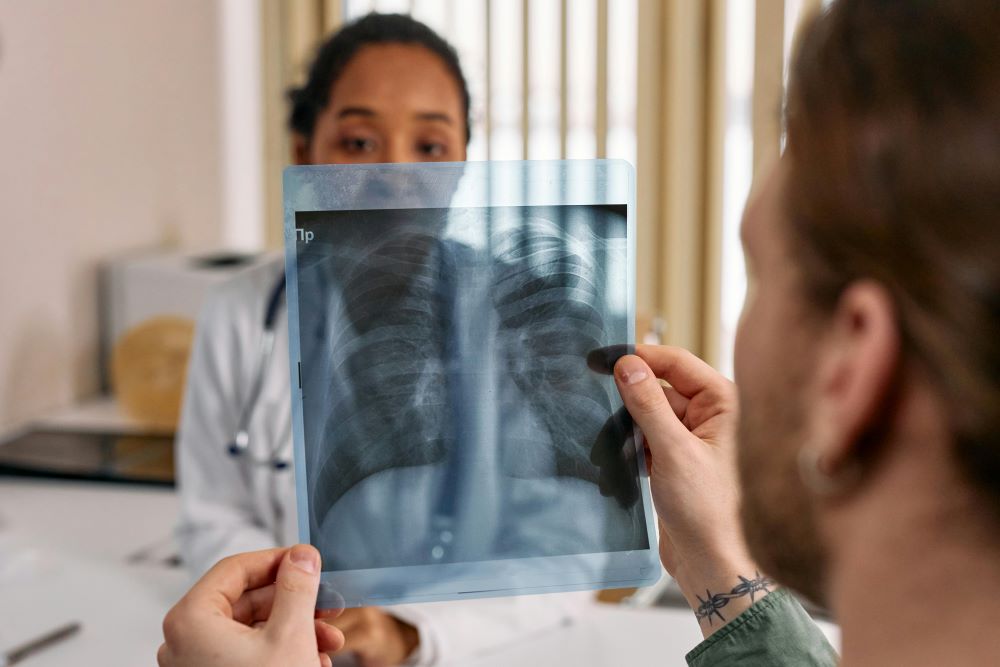When immunotherapy is administered can make a significant impact on a patient’s life expectancy.
Recent research into small cell lung cancer (SCLC) reveals that immunotherapy can offer greater survival benefits, as long as immunotherapy is administered at a specific time in the treatment process. A multi-institutional phase III trial suggests that ordering immunotherapy after completing chemoradiation extends survival more effectively than delivering it simultaneously. This marks an important step forward in improving treatment strategies for SCLC, an aggressive form of cancer that accounts for 10-15% of all lung cancer cases in the United States.
The clinical trial, conducted by NRG Oncology/Alliance, involved 544 patients across the U.S. and Japan. These patients received either concurrent chemoradiation alone or in combination with the immunotherapy drug atezolizumab. The study found that immunotherapy, when used alongside chemoradiation, did not significantly improve SCLC survival outcomes compared to standard treatment. In fact, patients who received both treatments together had slightly lower overall survival rates at one, two, and three years compared to those who only received chemoradiation.
Immunotherapy, designed to enhance the body’s immune system to fight cancer cells, has shown remarkable promise. However, the LU005 trial findings suggest that administering immunotherapy too early—during radiation therapy—could stunt SCLC survival rates. Radiation itself has immunosuppressive qualities that may interfere with the body’s ability to mount an ideal immune response. Researchers believe that waiting until radiation treatment concludes gives the immune system a chance to recover and enhances the potency of immunotherapy.

Kristin Higgins, MD, the principal investigator of the trial, explained that although combining treatments at the same time might intuitively seem beneficial, the immune system needs time to recuperate after radiation to fully benefit from immunotherapy. This idea aligns with findings from a separate phase III study, the ADRIATIC trial, which found that administering immunotherapy after the completion of chemoradiation significantly reduces the risk of death for patients with SCLC.
Another key takeaway was the impact of the radiation dose administered on survival. The trial compared patients receiving radiation once daily to those receiving it twice daily and found that the latter group had better overall life expectancy rates. This suggests that delivering radiation in a more intensive, twice-daily schedule can offer survival benefits. While this approach may be logistically more challenging for patients and healthcare providers, the data imply that it could be worth reconsidering for its potential survival advantages.
Small cell lung cancer remains a particularly lethal form of cancer, with a five-year survival rate of only 30% for patients diagnosed with limited-stage disease. The standard treatment of concurrent chemoradiation can be initially effective, but the cancer frequently recurs, leaving patients with few options for additional treatment. Immunotherapy represents an important new frontier but understanding when and how to incorporate it into treatment protocols is crucial for maximizing its benefits.
The findings raised questions about current treatment protocols. Most radiation oncologists in the U.S. currently favor a once-daily radiation schedule, as it presents fewer logistical challenges. However, the results of this trial indicate that twice-daily treatments could significantly improve patient outcomes. Higgins noted that while twice-daily radiation may be more burdensome for both patients and providers, the survival benefit it offers should prompt a reevaluation of current radiation delivery strategies.
Although this study did not demonstrate a significant benefit for concurrent chemoradiation and immunotherapy, it provided valuable insights into how treatment strategies for SCLC can be improved. By refining the timing of immunotherapy and exploring more intensive radiation schedules, future treatment protocols may improve survival.
Sources:
Immunotherapy Should Come After Radiation in SCLC
Immunotherapy timing key to survival in small cell lung cancer treatment


Join the conversation!